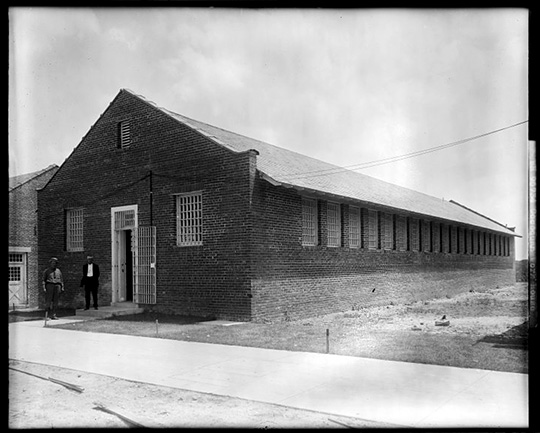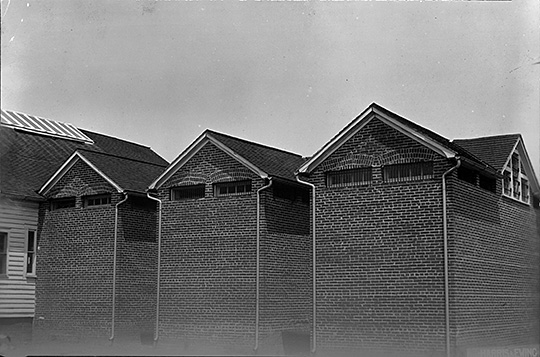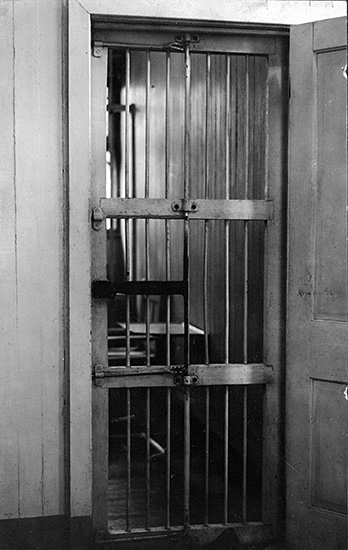 print preview
print previewback 1917 SUITE | SILENT SENTINELS AND THE NIGHT OF TERROR
VOICES FROM OCCOQUAN
Mrs. Virginia Bovee’s Affidavit
reprinted from Jailed for Freedom, Doris Stevens, 1920
Mrs. Bovee, a matron, was discharged from the workhouse because she tried to be kind to the suffrage prisoners. She also gave them warnings to guide them past the possible contamination of hideous diseases. As soon as she was discharged from the workhouse she went to the headquarters of the Woman’s Party and volunteered to make an affidavit. The affidavit of Mrs. Bovee follows:
I was discharged yesterday as an officer of Occoquan workhouse. For eight months I acted as night officer, with no complaint as to my performance of my duties. Yesterday Superintendent Whittaker told me I was discharged and gave me two hours in which to get out. I demanded the charges from the matron, Mrs. Herndon, and I was told that it was owing to something that Senator Lewis has said.
I am well acquainted with the conditions at Occoquan. I have had charge of all the suffragist prisoners who have been there. I know that their mail has been withheld from them. Mrs. Herndon, the matron, reads the mail, and often discussed it with us at the officers’ table. She said of a letter sent to one of the suffragist pickets now in the workhouse, “They told her to keep her eyes open and notice everything. She will never get that letter,” said Mrs. Herndon. Then she corrected herself, and added, “Not until she goes away.” Ordinarily the mail not given the prisoners is destroyed. The mail for the suffragists is saved for them until they are ready to go away. I have seen three of the women have one letter each, but that is all. The three were Mrs. Watson, Miss Ewing, and I think Miss Flanagan.
 |
| Exterior of Occoquan Workhouse, c. 1917. |
The blankets now being used in the prison have been in use since December without being washed or cleaned. Blankets are washed once a year. Officers are warned not to touch any of the bedding. The one officer who handles it is compelled by the regulations to wear rubber gloves while she does so. The sheets for the ordinary prisoners are not changed completely, even when one is gone and another takes her bed. Instead the top sheet is put on the bottom, and one fresh sheet is given them. I was not there when these suffragists arrived, and I do not know how their bedding was arranged. I doubt whether the authorities would have dared to give them one soiled sheet.
 |
| Cell Block at Occoquan Workhouse, c. 1917. |
The prisoners with disease are not always isolated, by any means. In the colored dormitory there are two women in the advanced stages of consumption. Women suffering from syphilis, who have open sores, are put in the hospital. But those whose sores are temporarily healed are put in the same dormitory with the others. There have been several such in my dormitory.
When the prisoners come they must undress and take a shower bath. For this they take a piece of soap from a bucket in the store room. When they are finished they throw the soap back in the bucket. The suffragists are permitted three showers a week and have only these pieces of soap which are common to all inmates. There is no soap at all in wash rooms.
The beans, hominy, rice, cornmeal (which is exceedingly coarse, like chicken feed) and cereal have all had worms in them. Sometimes the worms float on top of the soup. Often they are found in the cornbread. The first suffragists sent the worms to Whittaker on a spoon. On the farm is a fine herd of Holsteins. The cream is made into butter and sold to the tuberculosis hospital in Washington. At the officers’ table we have very good milk. The prisoners do not have any butter or sugar, and no milk except by order of the doctor.
 |
| Cell at Occoquan Workhouse, c. 1917. |
Prisoners are punished by being put on bread or water, or by being beaten. I know of one girl who has been kept seventeen days on only water this month in the “booby house.” The same was kept nineteen days on water last year because she beat Superintendent Whittaker when he tried to beat her.
Superintendent Whittaker or his son are the only ones who beat the girls. Officers are not allowed to lay a hand on them in punishment. I know of one girl beaten until the blood had to be scrubbed from her clothing and from the floor of the “booby house.” I have never actually seen a girl beaten, but I have seen her afterwards and I have heard the cries and blows. Dorothy Warfield was beaten and the suffragists heard the beating.
(Signed) Mrs. Virginia Bovee.
Subscribed and sworn to before
me this day of August, 1917.
Joseph H. Batt, Notary Public. ![]()
Silent Sentinels and the Night of Terror
Introduction & Table of Contents
Voices from Occoquan
Introduction & Table of Contents
1917 Suite: A Month, a Year, a Term of Liberty
Introduction & Cross-issue Table of Contents